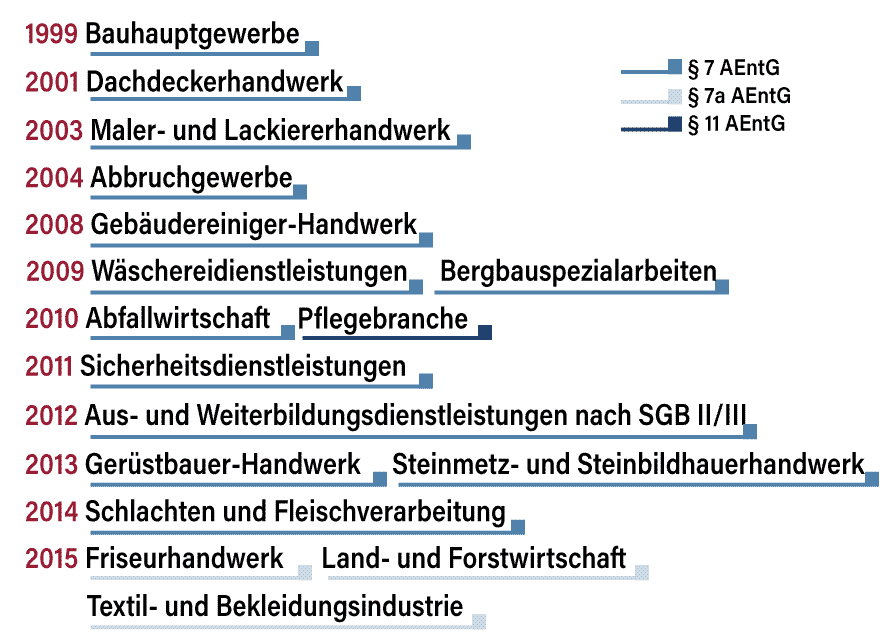Do not misuse legal ordinance under the Employee Posting Act for state wage fixing purposes

©AdobeStock Dan Race
With the Employee Posting Act (AEntG), which was last amended in 2020, a nationwide sectoral collective agreement can be extended to all employers and employees in this sector by means of a statutory order. As the umbrella organisation of German employers' associations, the BDA, in agreement with its member associations, stands for a responsible and cautious use of the instrument of legal ordinance.
Extension of a collective agreement has far-reaching consequences
The objective and scope of the law have been greatly expanded over the years.
Links to the topic
The BDA Collective Bargaining Service collects and evaluates, among other things, collective bargaining agreements and background information on the current collective bargaining rounds and on general collective bargaining activities. This supports the BDA's member associations in particular during their collective bargaining negotiations with data material on collective bargaining policy.
A collective bargaining archive and a collective bargaining database in the employer portal are available for research purposes. The "BDA-Tarifinformationen" (BDA Collective Bargaining Information), a circular from the Collective Bargaining Service, provides information on the key data of current collective bargaining agreements. Central overviews of collective bargaining policy are published on an ongoing basis in the "BDA Collective Bargaining Handbook".
Facts and figures
Entry into force of the first AEntG legal ordinance by sector in each case
Source: BDA Tariff Service, 2020









